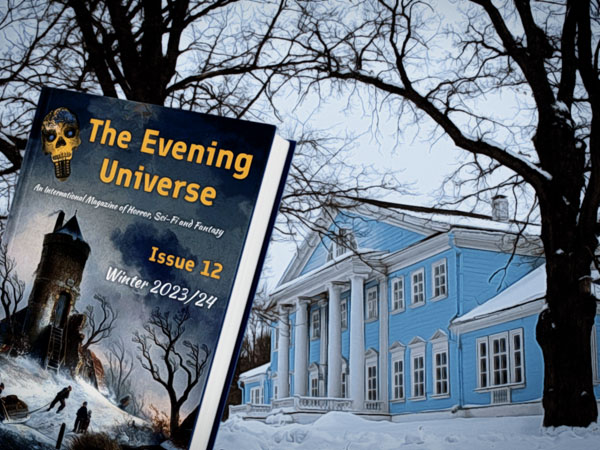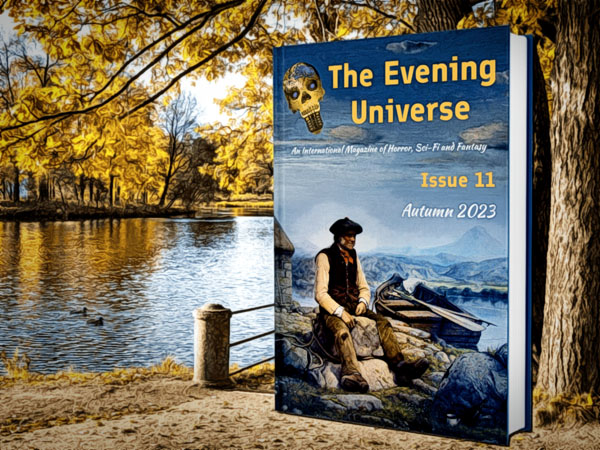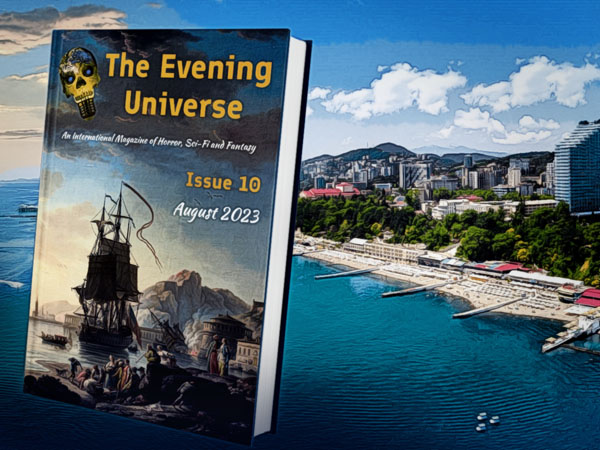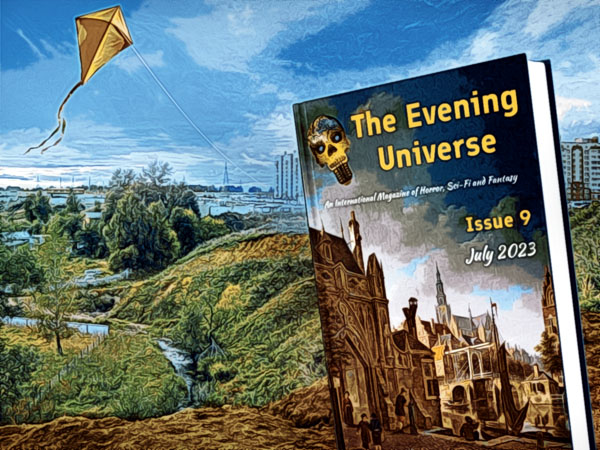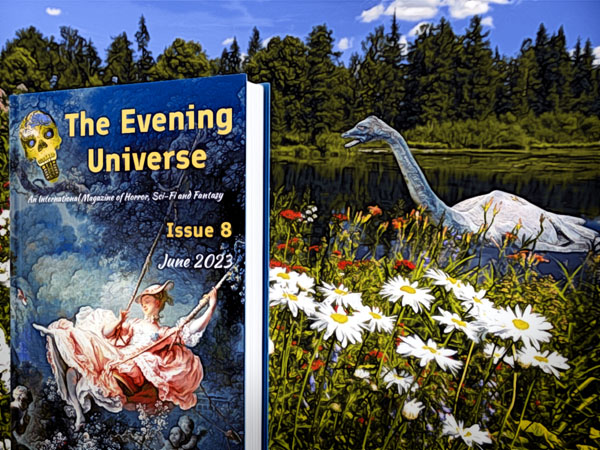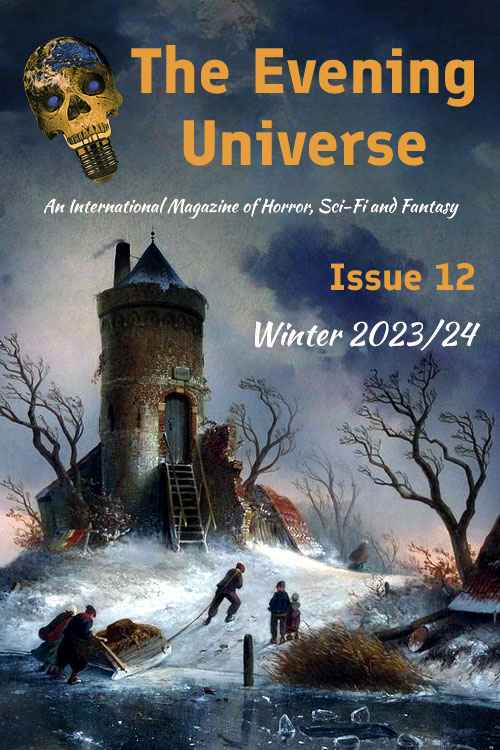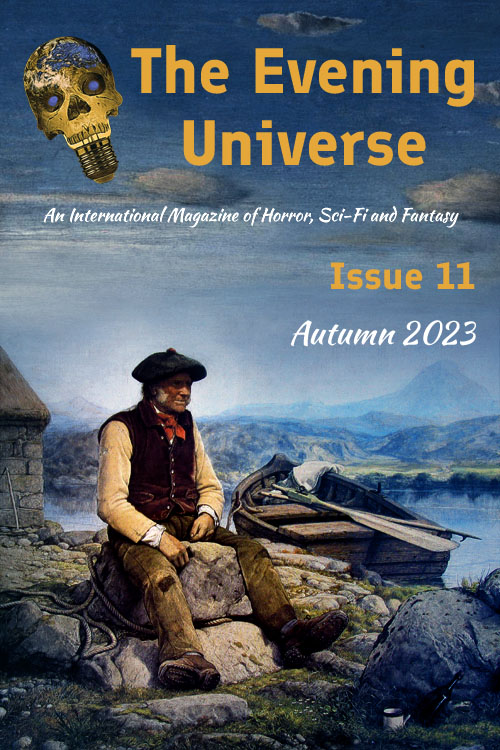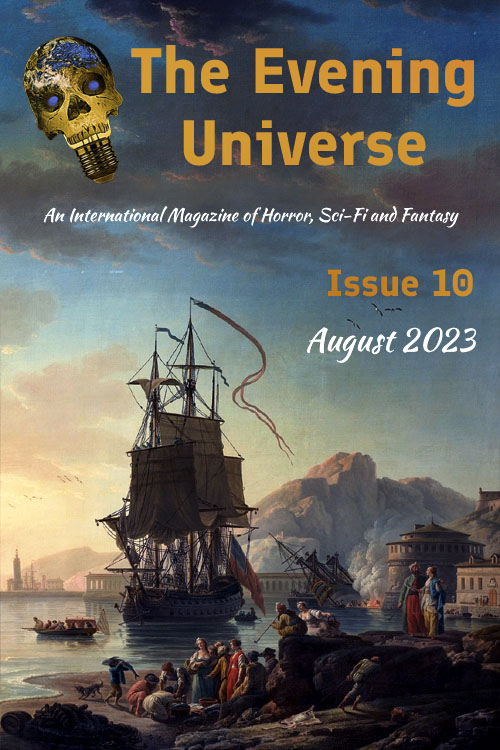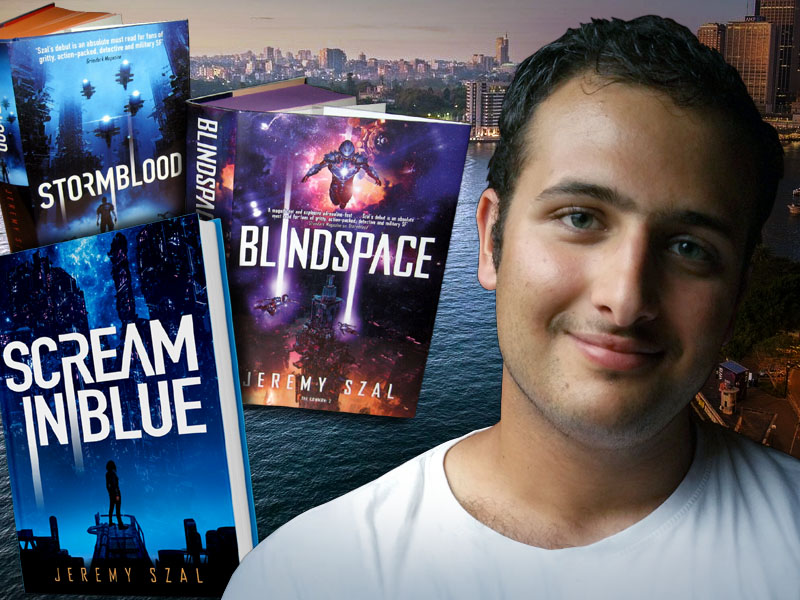
Jeremy Szal is an Australian space opera and fantasy author. He was born in 1995 in Sydney, Australia, where he has lived almost all his life. From 2014 to 2020, Jeremy was the fiction editor and audio producer for the Hugo-winning podcast StarShipSofa. Authors he’s worked with on the show include George R. R. Martin, Harlan Ellison, and William Gibson. Jeremy’s first novel, Stormblood, was published by Gollancz in 2020, with the sequel Blindspace following in 2021. His short stories, nonfiction articles and essays on science-fiction genre have appeared in numerous anthologies and magazines, including Nature, Lightspeed Magazine, Strange Horizons.
In the forth issue of “The Evening Universe,” we have published his article “My experience on having my sci-fi debut edited by a Big Five publisher.” Then I asked Jeremy for an interview, and he kindly agreed to write the answers to all my questions.
You like to joke that you was raised by wild dingoes. But according to your interviews, in fact your mother is an English teacher who has been pushing books into your hands as long as you can remember. I believe that a good writer is always a good reader. Dou you agree with me? What books inspired you to become an author?
A mind needs books like a blade needs to be sharpened, and that’s especially true for us writers. If I want my mental blade to be cut cleanly, so to speak, then I have to sharpen it. My mother is the one who provided me with all the books I needed, and I’ll always be grateful for it.
The Red Rising series by Pierce Brown, A Song of Ice and Fire by George R. R. Martin, and The First Law trilogy by Joe Abercrombie had a huge influence on me when I was growing up. Especially the Red Rising Saga. Science-fiction often has a reputation for being dull, jargon-heavy, dry, and filled with cardboard characters. Here, I found a series that was visceral and explosive and unexpected and gut-wrenching. It was showing me that there was room for someone like me to tell the kind of stories I wanted to tell.
For many people worldwide, Australia seems like a very exotic place, so from the very beginning you had something to surprise your readers. But you also lived in Europe and Thailand and traveled a lot. Was this experience of visiting different locations helpful for your sci-fi and fantasy worldbuilding? And if so, would you give us a few examples?
Definitely, yeah. The world of the Common is a galactic commonwealth, filled with many species and human space-faring factions and microsocieties, and this is made evident on Compass: the hollowed-out asteroid where the story primarily takes place. There’s a melting pot of cultures and species, languages, hybrid species, seen on almost every floor of the place. And my traveling to all these different places, seeing so many cultures and languages and foods and nationalities, all brushing up against one another in new and interesting ways, was a massive influence on my chosen method of storytelling.
You were the fiction editor and audio producer for the Hugo-winning podcast “StarShipSofa.” Authors you have worked with on the show include George R. R. Martin, Harlan Ellison, and William Gibson. What this experience gave to you as a writer?
Getting the chance to work with these literary giants was hugely humbling, of course. But it also taught me that they’re people, like any other, and are entirely approachable and personable, and need to be treated as such. George R. R. Martin offered to send me a carbon copy of the story that we reprinted and adapted, and Harlan Ellison happily spoke to me over the phone for the better part of half an hour, to discuss the particulars of the contract. If I didn’t feel that I was up to the “challenge” of conversing with them, to hold up my end of a discussion, they’d never have respected me as an editor and producer, and they’d be right to.
Sure, it was nerve-wracking, especially on the phone to Mr. Ellison, whose cantankerous temper is infamous throughout the industry, but it taught me a lot about knowing what I wanted out of a situation, and how to treat my peers with the respect and decorum they deserved.
The two first books (“Stormblood” and “Blindspace”) of your trilogy “The Common Saga” impressed many readers. When can we expect the next book? Do you have a title already? Will we be surprised by the way the trilogy ends?
Thank you! The next title is Wolfskin. I think it’s the coolest, edgiest title in the series yet. Like the previous titles before it, it has a strong relevance to the running theme of the book, which won’t be revealed until a certain chapter (but you’ll know it when you see it).
As for when you can expect it: hopefully early next year. Or possibly a little later. I don’t have a definite date nailed down, and the book is proving to be a troublesome bastard. But a first draft does exist, and my agent has read it. I won’t allow myself to release a book that I’m not 100% content with, and so I’m burning the midnight oil to make the book is brutal and shocking and visceral and emotional as I can make it.
As for the way the trilogy ends: that would be telling, wouldn’t it? I have an ending in mind. All I’ll say is that it’s going to end the only way it can, and that it will end well.
But I’m not telling you who it will end well for!
You just published the “Scream in Blue,” a standalone, fast-paced cyberpunk novelette set in the world of “The Common Saga.” I am sure that in the novelette you wanted to say about something not very important in the context of the trilogy but really important to you. Am I right?
I wanted to explore another point of view, another perspective, in the world of the Common. In the main book series, we’re always locked in the first-person, singular point of view of Vakov. I wanted to branch out, wear a different skin, and to show how the stormtech drug trade functions from the perspective of some of the drug mules and drug dealers themselves, and the guilt and danger and consequences that arise from such dealings.

